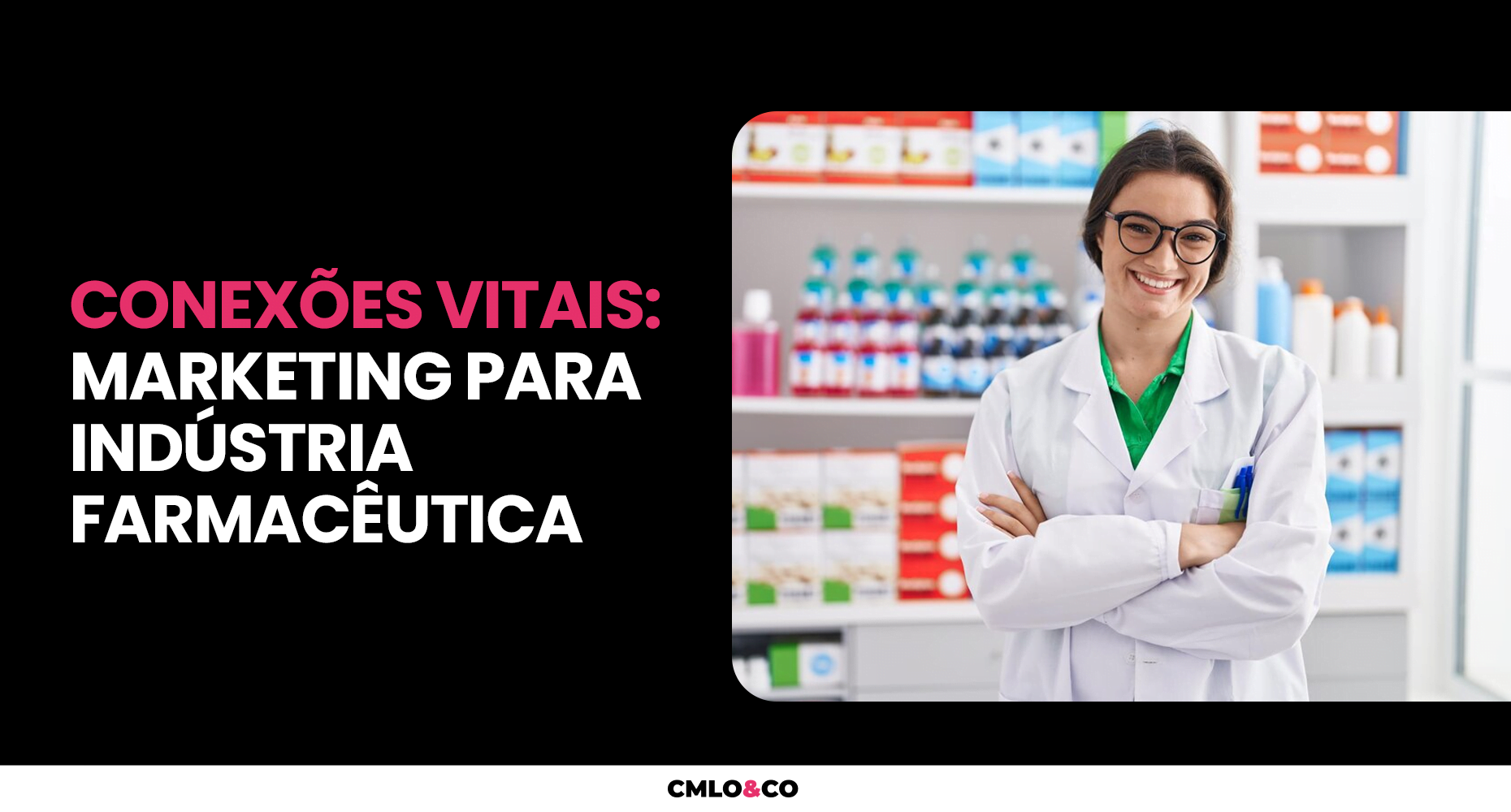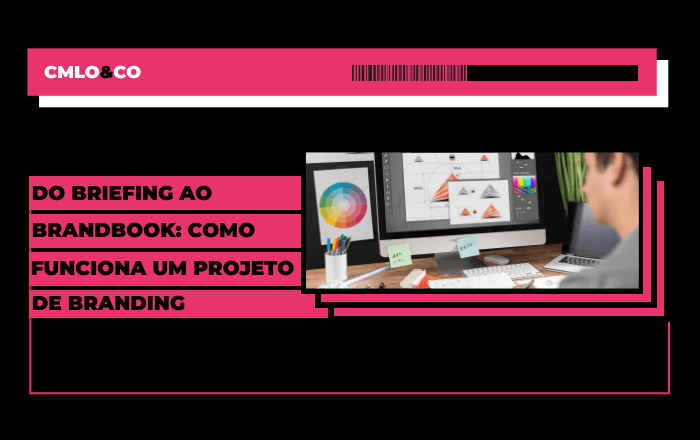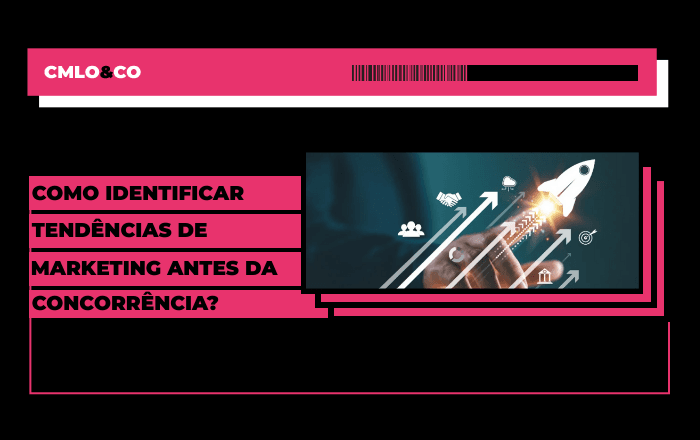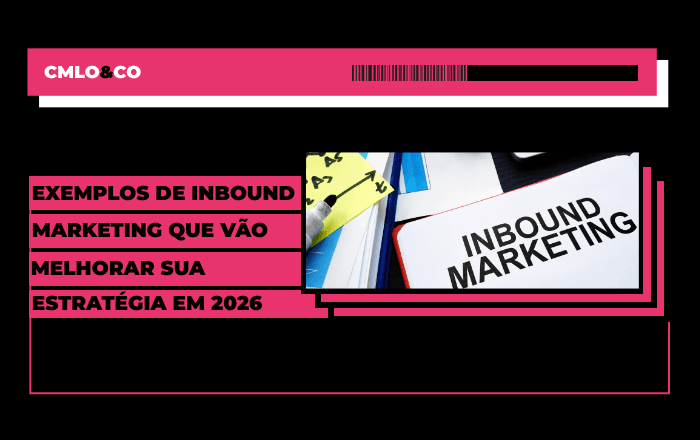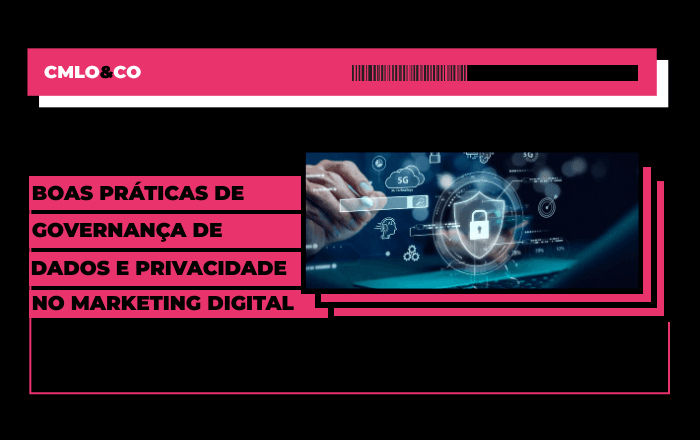Marketing plays a key role in the pharmaceutical industry, helping companies to effectively communicate the benefits of their products and establish positive relationships with doctors, pharmacists and patients.

However, this approach, better known as pharmaceutical marketing, goes far beyond simply promoting medicines. In fact, it even influences consumers' purchasing decisions, but it is also an excellent tool for education and information, ensuring that products are used safely and effectively.
In this article, we'll discover the objectives and benefits of marketing for the pharmaceutical industry, and the importance of relying on a company specializing in Health Marketing to design and implement effective strategies. Read on.
What is pharmaceutical marketing?
Marketing for the pharmaceutical industry is a specialized area of marketing that focuses on the promotion of medicines and health products.
Its main objective is to educate and inform health professionals and consumers about pharmaceutical products. But not just to increase sales.
The approach also helps to inform health professionals and the public about new treatments and therapies available, ensuring that patients receive appropriate treatment.
In addition, pharmaceutical marketing also seeks to build and maintain relationships of trust and credibility between the brand and its stakeholders, as well as helping to ensure that all marketing activities comply with legal regulations.
Lines of action in pharmaceutical marketing
Marketing in the pharmaceutical industry is multifaceted and can be categorized into different lines of action, each with its own specific objectives and strategies. Let's understand them below.
Direct action for doctors
This strategy involves communicating directly with health professionals, providing them with scientific and clinical information about the products.
This can include visits from medical representatives, distribution of free samples, educational materials, workshops, training and sponsorship of scientific events. The aim is to generate more trust in a particular brand over others.
Direct action for consumers
This line of action, on the other hand, focuses on products that are allowed to be advertised by law and aims to educate and inform consumers about the benefits of products, encouraging choice and conscious purchasing.
Pharmaceutical marketing strategies in this case include advertising campaigns in various media, such as television, radio, the internet and social media, highlighting the benefits and differentials of the products.
Complementarily, it also involves providing patients with clear and accurate information about medical conditions, available treatments and how to use medicines correctly.
Depending on the manufacturer, it may also include the implementation of loyalty programs, discounts and promotions to encourage purchase and adherence to treatment.

Indirect action to reinforce the main brand
This strategy seeks to strengthen the brand's recognition and image in the market, especially after the generic medicines legislation.
Strategies include branding campaigns, marketing educational and informative content about the medical condition, treatment and the importance of choosing the right medication.
It also involves establishing partnerships with pharmacies, hospitals and clinics to promote the brand and products.
Promoting a culture of medicalization
Finally, this approach to marketing for the pharmaceutical industry involves promoting treatments and medicines within a broader context of health and well-being, educating the public about medical conditions and the importance of proper treatment.
In this case, strategies include carrying out educational campaigns on specific medical conditions, prevention and treatment, as well as collaborating with health professionals to promote awareness and health education.
Benefits of pharmaceutical marketing
Marketing to the pharmaceutical industry has many benefits, both for companies in the sector and for health professionals and society in general. See what these benefits are:
- Increased awareness of diseases and treatments;
- Improving access to health information;
- Promoting the responsible use of medicines;
- Establishing relationships of trust between doctors and patients;
- Increased sales, as pharmaceutical marketing positively influences the purchasing decision and increases product sales;
- Compliance of marketing strategies with regulations applicable to the health sector.
Main pharmaceutical marketing strategies
In the context of the pharmaceutical industry, marketing strategies play a crucial role in promoting medicines and health products.
As we saw earlier, these strategies are designed to educate, inform and influence doctors, patients and other professionals in the sector, ensuring that products are used safely, effectively and ethically.
But what are the strategies most used by this approach? That's what we'll see below.
1. content marketing
The content marketing is an essential strategy for educating and informing doctors and patients about drugs, medical conditions and treatments. Key tactics include:
- Development of articles, case studies and scientific publications to provide detailed information about the products and the medical conditions they treat;
- Organization of webinars and online courses to update doctors and patients on the latest advances in treatments and medicines;
- Creation of infographics and educational videos to clearly and visually explain the benefits, dosages, side effects and contraindications of the products.
2. Digital Marketing
Digital marketing is a powerful tool for reaching and engaging target audiences in an effective and measurable way. Its main strategies include:
- SEO (Search Engine Optimization)Website and content optimization to improve search engine rankings and increase online visibility;
- SEM (Search Engine Marketing): the use of paid advertisements, such as Google Ads, to increase visibility and qualified traffic to the site;
- Social Media: creating and managing profiles on social networks to share educational content, interact with the public and promote products;
- Email Marketing: sending newsletters and email campaigns to inform doctors and patients about new products, events and relevant updates.
3. Public Relations and Press Office
Public relations strategies play an important role in reputation management and brand communication with the public and the press. See what they are:
- Sending press releases and organizing interviews with experts to increase the brand's visibility and credibility in the media;
- Preparing for and managing reputational crises to deal with adverse situations and protect the brand's image;
- Organizing events, participating in fairs and establishing strategic partnerships to promote the brand and products.
4. Education and Training
Education and training are key to ensuring that doctors, pharmacists and other health professionals are well-informed about the products and know how to prescribe and use them correctly. The main strategies for achieving these goals are:
- Organization of workshops, seminars and training sessions to update healthcare professionals on products and best prescribing practices;
- Development and distribution of educational materials, such as prescription guides, product manuals and information leaflets;
- Creation of continuing education programs for doctors and pharmacists, encouraging constant updating on products and treatments.
5. Customer Relationship Management (CRM)
Customer Relationship Management (CRM) is a fundamental strategy that allows pharmaceutical companies to manage and analyze interactions with current and potential customers, improving the relationship and loyalty. The main tactics include:
- Classification and segmentation of customers based on demographic, behavioral and purchase history characteristics to personalize marketing and communications;
- Collecting and analyzing customer data to understand their needs, preferences and behaviors, enabling the development of more effective and targeted marketing strategies;
- Use of marketing automation tools to send personalized messages, email campaigns and promotions to customers at strategic times, improving engagement and conversion;
- Implementation of efficient customer service and support systems to answer questions, resolve problems and provide exceptional service, improving customer satisfaction and loyalty.
Brazilian legislation regulating pharmaceutical marketing
In Brazil, pharmaceutical marketing is regulated by laws and guidelines aimed at protecting consumers and guaranteeing the ethical promotion of products.
In this sense, the National Health Surveillance Agency (ANVISA), the Federal Pharmacy Council (CFF) and the Federal Medical Council (CFM) play an extremely important role in supervising the activities of Health Marketing.
In the context of marketing, the RDC no. 96/2008ANVISA's guidelines for advertising, publicity, information and other practices aimed at publicizing or commercially promoting medicines. Knowing these guidelines, therefore, is the first step towards ethical and successful campaigns.
The importance of having a communications company specializing in Health Marketing
As we presented in this article, marketing is vital for the pharmaceutical industry, as it plays an important role in educating and informing healthcare professionals and patients.
However, to successfully navigate the complex regulatory and ethical environment of pharmaceutical marketing, it is essential to rely on a communications company specializing in Health Marketing, such as CMLO&CO.
With the help of experienced marketing and advertising professionals and innovative strategies, CMLO&CO helps pharmaceutical companies communicate their products and values, maximizing the reach, effectiveness and impact of their campaigns. Discover our communication solutions for companies in the health sector.


